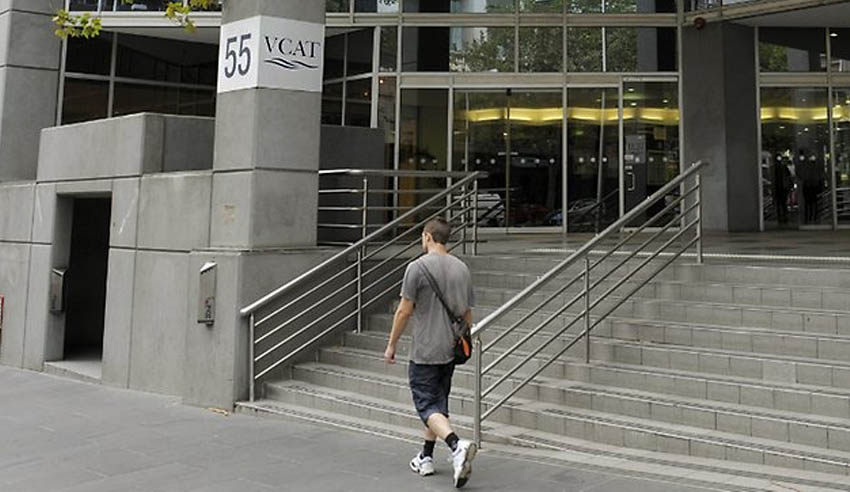A sole legal principal has been found guilty of unsatisfactory professional conduct and professional misconduct on five charges for her role in a practice that has been targeted by the “phoenixing” technique, which consists of placing people with drug, mental health or other major, personal issues as director of a struggling company.

Content warning: The article contains content dealing with significant mental health impairments and manipulative relationships.
The respondent – known to the court as OAG – was principal in name only and has operated under pressure from a “coercive and controlling” former domestic partner, a non-lawyer who directed the operations of the law practice along with an accounting firm that operated in the same space. OAG had no day-to-day involvement in the practice and, at the time, was suffering from serious mental illness.
OAG has not held a practising certificate since 2017, when the investigations into the firm commenced, and is currently in a “serious and financial fallout” as a result of being caught up in her former partner’s activities. This included “phoenixing” companies, which often included installation of “dummy directors”.
The directors had drug or mental health problems and were placed into companies with significant debts, including the law practice. It is important to note that it is not alleged OAG was directly or knowingly involved in this conduct and little of the charges related to her former partner’s activities but is relevant to lighter penalties.
Relevant to four of the charges, OAG did not wish to engage in legal practice at the relevant time and had only established and nominated herself the principal from around 2012 “under duress from her former partner” and, at the time, she was “very unwell and probably medically unfit to attend to her obligations”.
“The respondent’s mental illness and personality issues make her particularly vulnerable to be exploited by controlling and manipulative personalities. Without any consciousness of doing so, she is inclined to relinquish control of important aspects of her life and accept information as truthful,” the tribunal noted.
Charge one related to the respondent’s failure to supervise a clerk, who was not a lawyer but provided advice to a couple seeking to purchase a home over nine months, but the law practice was not officially acting for them. The practice and the accounting firm may, at some point, have acted for their daughter and son-in-law.
The law practice only made it clear that it was not acting for the clients when the settlement stalled, the clients appointed new solicitors and those solicitors asked for the file to be transferred to them. At no time had the law practice advised them that they should obtain independent legal advice about the purchase.
“It is apparent that they suffered significant financial loss from the transaction. There is also a suggestion that [the client’s son-in-law] was employed by the respondent’s former partner’s accounting firm in some capacity,” the tribunal added.
The respondent had no involvement in or knowledge of what was and was not done, and the source of the charge is her liability arising from her obligations as a legal practitioner director to supervise the work of legal and non-legal staff. This conduct was characterised by the tribunal as misconduct at common law.
The next two charges related to the law practice’s failure to provide a file relating to the sale of the property to the commissioner when requested. According to the Law Institute of Victoria’s audit report, the law practice did not have a file management system and completed files were stored in a room with no recording system.
It is again important to note that the respondent’s charges had nothing to do with alleging that she was involved in the file going missing but the fact that, as the sole legal principal, she was responsible for implementing systems to keep files secure. She was found guilty of unsatisfactory professional conduct for this conduct.
The next charge related to her failure to be listed with ASIC as director in circumstances where it would have been apparent to the reasonable person performing the functions of a director that she was not listed, “which conduct falls substantially short of the standard of competence and diligence”. This specific conduct was characterised by the tribunal as professional misconduct.
The person at the centre of the final charge was a homeless man who was listed as a director of the practice without his knowledge.
In the course of the investigation, false information about this man was provided by the solicitors acting for OAG to the commissioner, including an assertion that the man had stolen the corporate key of the law practice, illegally listed himself as director and had stalked but was unknown to the respondent’s former partner.
It is not alleged that the respondent dishonestly provided false information. Instead, the allegation is that she provided the information that her former partner had told her and that she had accepted without making reasonable inquiries as to its truthfulness, in circumstances where a reasonable person in her position ought to have known or suspected that the information was false.
A/N: The respondent’s identity has been suppressed by the court and every effort has been taken to ensure that no identifying features are published.
Help is available. Call Lifeline on 13 11 14 or Respect on 1800 RESPECT (1800 737 732). Every law society and bar association of each state also has further contacts available on their respective websites.
